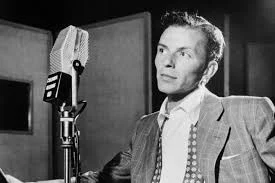As a vocalist, Dee Dee Bridgewater is a master of reinterpretation. On Red Earth (EmArcy), in 2005, she invoked her Nigerian musical heritage through a baker’s dozen of contemporary jazz originals and rarely sung standards. Ten years later, she revamped the traditional New Orleans repertoire with contemporary feels and arrangements on Dee Dee’s Feathers (Sony/Okeh/DDB). And on Memphis...Yes, I’m Ready (Sony/Okeh/DDB), she reaches into the R&B soundtrack of her Tennessee birthplace circa the 1950s and pulls several landmark tunes into the current century. View post to read more.
Jazz singer Alexis Cole’s career has been anything but conventional. She’s done residencies in far-flung places like Ecuador, India, and Japan. She fronted the Army’s big band for several years as a soldier herself. And now she’s a faculty member in the jazz program at SUNY Purchase. With a dozen critically acclaimed albums under her belt, some big awards on her shelf, and more good stuff to come, Alexis distinguishes herself a leader in the ever-evolving world of vocal jazz. View post to read more.
Fifty years ago, Frank Sinatra and Antonio Carlos Jobim recorded the landmark album Francis Albert Sinatra & Antônio Carlos Jobim (Reprise), a collection of seductive bossa novas that kept Sinatra musically relevant during the onslaught of British rock during the latter part of the 1960s. Earlier this year, Universal Music Enterprises dropped a luxe, remastered version of the classic album to commemorate this inspired collaboration—but they weren’t the only ones wanting to pay homage. View post to read more.
I left Europe a week ago today after bopping back and forth between Paris and Krakow on a Euro-friendly budget airline. Last time I was in Krakow, two years ago, I sang with my guitarist friend Wiesław Wilczkiewicz in Piwnica pod Baranami (Cellar under the Rams), one of the top jazz clubs there. PpB is a cluster of dark, subterranean rooms that accommodate performing arts groups of different sizes; we were in the one that had an array of 45s wallpapering the foot of the stage. The club sits at a corner of Rynek Główny, the main square, which dates back to the 13th century. Back then, jazz hadn't been thought up yet and PpB was probably just a regular cellar for root vegetables and beer. In the 1950s it would become a hangout for dissident artists. View post to read more.
“I’m not a jazz singer. I’m a singer,” insisted Sarah Vaughan in a 1982 interview with Downbeat. Vaughan was even more than that. She was a businesswoman, an activist, and a mentor to young musicians of her day (Miles Davis and Chick Corea among them). In The Musical Lives of Sarah Vaughan: Queen of Bebop, author Elaine M. Hayes reveals Vaughan to be a powerful force of nature to those around her; this probing, heavily researched biography respectfully pulls back the curtain on the life of one of the most beloved—and private—singers of the 20th century. It’s a joy to read. View post to read more.
Singer/guitarist Allan Harris has been quietly gaining stature in the jazz world over the last three decades, but it wasn’t until 2015 that he claimed a spot in the Downbeat Critics Poll—remarkably, as a rising star vocalist. This accolade followed on the heels of his 2015 release Black Bar Jukebox (Love Production Records), his tenth album. Weaned on jazz at the knee of none other than Louis Armstrong, a family friend, Harris likes mixing it up on his albums; like Armstrong, he’ll cover a country/western tune with the same vocal alacrity as a jazz standard. View post to read more.
Dallas-born singer Jazzmeia Horn’s debut album is finally here. Horn first gained national attention when she won the Sarah Vaughan Competition in 2013, shortly after graduating from The New School’s vocal jazz program, but before winning the Thelonious Monk Competition in 2015. It’s been a long but worthwhile wait. With A Social Call (Prestige), Horn stands prepped to step into jazz stardom. View post to read more.
Before NYC-based singer/actor Julie Benko took top honors in the American Traditions Competition in Savannah, Georgia, this past February, she’d already completed two Broadway contracts, two national tours, and several regional shows. In a recent phone call from her TheatreWorks Silicon Valley gig in California, Julie gave 5MM the backstory on her winning performance and some news about her debut jazz CD, set to launch this fall. View post to read more.
If you listen to just the CD of The Big Wig (ACT), Swiss singer/composer Andreas Schaerer’s six-movement jazz composition for voice and orchestra, you might not catch how remarkably skilled Schaerer is at beatboxing and instrumental mimicry. When he sings, this pioneering vocalist’s wide-ranging, protean melodies seem to emanate from his entire body, and his “human trumpet” vocalizations are easy to mistake for the brass instrument itself. View post to read more.
Jazz singer and Tulsa native Dara Tucker won the silver medal in the American Traditions Competition in Savannah, Georgia, last month for her rich, emotive interpretations of nine tunes in nine different genres of American music. She’s currently putting the finishing touches on her fourth studio album, Oklahoma Rain, slated to drop on April 28th. View post to read more.
Last month Verve released several of the Ella Fitzgerald Songbook and Decca recordings as Mastered for iTunes (MFit) files. What this means, in simple terms, is that listeners can now hear remastered recordings of Ella’s voice that are more faithful to the original analog recordings than any digital recordings to date. Verve’s re-release of these historically important, technologically superior recordings arrives just in time. View post to read more.
The U.S. first celebrated Negro History Week, the brainchild of historian Carter G. Woodson, in February 1926. Woodson started Negro History Week to fill some gaps in U.S. history as it was then written, absent any mention of the accomplishments of African Americans. Fifty years later, Woodson’s Association for the Study of Negro Life and History, the sponsoring organization, expanded the weeklong commemoration to a month. This February, several singers—each a history-maker in her own right—will pay tribute to our country’s African American heritage. View post to read more.
Jimmy Scott, who got his start singing with Lionel Hampton’s band in the 1940s and 1950s, may be the only countertenor in the history of vocal jazz. After Scott’s initial success with Hampton, his career was hamstrung for decades, the casualty of legal wrangling over album releases. What a sorry loss for jazz listeners. Eden River Records and producer Ralf Kemper go a long way to remedy this loss with I Go Back Home—A Story about Hoping and Dreaming, Scott’s final album, recorded in 2009, five years before Scott’s death in 2014 at age 88. View post to read more.
In her book Real Men Don’t Sing: Crooning in American Culture (Duke University Press), author Allison McCracken posits that white male singers in the Jazz Age turned the social order of the day on its head by covertly challenging the existing hyper-masculine norms of guy behavior. Male crooners wouldn’t have been a problem were they just a passing phase in American popular culture. But the rapid rise of home radios from 1920 onward allowed for private listening to these seductive male voices—and women loved them. To distraction. Hence the problem. View post to read more.
Bebop pianist Horace Silver first released “Peace” on his 1959 record for Blue Note, Blowin’ the Blues Away. The message of the tune holds relevance for all times, but perhaps especially so when social conflict fills the headlines. View post to read more.
Most of the tunes on singer-pianist Amina Claudine Myers’ latest release, Sama Rou (Amina C Records), are African-American spirituals that Myers’ arranged. The spirituals are uplifting, with their drawn-out tempos, a cappella sections, and heavenly invocations. But the truly transporting moments on the disc are in Myers’ original composition, “Intro: Crossings Part I, II & III.” View post to read more.
With Harlem on My Mind (Jazz Village/Harmonia Mundi) vocalist Catherine Russell has produced a sleek, winning album that exalts the works of composers like Clarence Williams, Ray Noble, and Fats Waller—tunes from the “blue heart of the great African American songbook,” the back cover says. These early jazz tunes never sounded better. View post to read more.
Jen Shyu ranked second in the Rising Female Vocalist category of the Downbeat Critics Poll this year, and her 2015 release, Sounds and Cries of the World (Pi), placed thirteenth in the Beyond Album category. Downbeat’s “Beyond” categories are reserved for artists whose work owes a musical debt to jazz or blues but that doesn’t fit neatly into either of these buckets. To be sure, any bucket big enough to hold Shyu’s work would have to be very big indeed. View post to read more.
When UK singer Julie Tippetts first became involved with the experimental music movement in the 1970s, she had something of an epiphany. "I realized that you're allowed to do whatever you want" in music, she explained. Post epiphany, Tippetts went on to make a name for herself in the avant garde jazz world, most recently with like-minded composer/multi-instrumentalist Martin Archer. The duo has released several recordings of their abstract, intuitively composed pieces, but they’d never performed any of their recorded work live until FIMAV invited them to. View post to read more.
Women don't receive the NEA Jazz Masters Award very often. But when a woman does win, she is most likely a singer. Singers both male and female are pretty well represented in the Awards: More than 10% of all award-winners have been vocal artists. Do what you will with these numbers, but the story they tell isn’t a bad one for singers. (It’s another matter for female instrumentalists, however.) View post to read more.




















